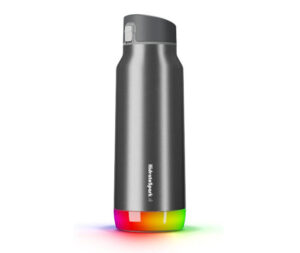No matter what diagnoses my clients may have, the topic of hydration invariably surfaces during our discussions. While some find it effortless to meet their fluid requirements, others struggle immensely. Consistently consuming an ample amount of fluids isn’t a universal skill. If you find yourself in the dehydrated camp, this post is for you!
RDs don’t advocate for upping fluid intake just to pester you. There are many reasons to maintain optimal hydration. Primarily, adequate hydration ensures the smooth operation of your body’s vital functions, including regulating blood pressure, stabilizing body temperature, lubricating joints, and bolstering the immune system. Moreover, adequate fluid intake can also alleviate issues like constipation and enhance feelings of satiety.
Without ample hydration, ingested fiber can exacerbate constipation and discomfort rather than alleviate it.
For individuals grappling with chronic constipation, proper hydration can ease the passage of stool. We’ll explore the option of increasing fiber intake if necessary. However, it’s essential to recognize that fiber relies on sufficient fluid intake to fulfill its role effectively. Without ample hydration, ingested fiber can exacerbate constipation and discomfort rather than alleviate it. Many clients turn to fiber supplements, laxatives, or prescriptions to combat constipation, but these efforts are futile without addressing chronic dehydration.
Often, what we perceive as hunger is actually thirst in disguise, making it challenging to discern the body’s true needs. If a client experiences frequent hunger despite consuming what should be sufficient food, the next step is to check if hydration needs are being met.
* As an Amazon Associate I earn from qualifying purchases



